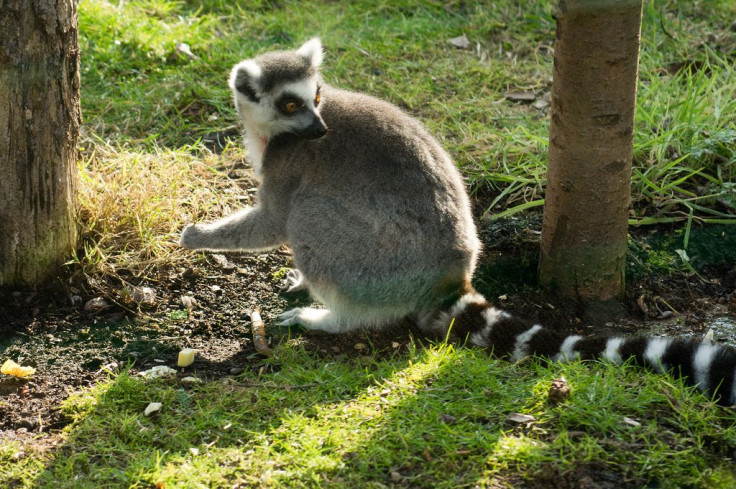Do Animals Have Social Intelligence?: Lemurs Who Travel In Large Groups Show More Tact

The social behaviors of animals are often fascinating. From their mating rituals to their hunting patterns, animal behavior is often very different from human behavior. However, what if they, too, could show social intelligence?
In a new study of lemurs that live in large rather than small groups, scientists found that these lemurs had more social tact than those living in smaller groups. The lemurs living in large groups were likely to steal food from a human if the person's body was turned completely away from them, but did not show the desire to steal, or even try to steal, the food if the person's body was facing them, even if a blindfold was tied around that person's eyes or mouth.
Lemurs from smaller social groups were less sensitive to whether the human was facing toward or away from them when they stole the food. However, neither type of lemur seemed to understand the significance of someone wearing a blindfold, as even the lemurs with less tact from a small group showed some hesitance in approaching food when the human was facing them but could not see.
In another experiment, where food to be stolen by the lemur was put behind a barrier, many of the lemurs adequately reached around that barrier and got the food quickly. Those from larger social groups were careful not to upset the barrier apparatus, as if they were aware someone would check it afterward. The researchers claim that this was not a learned behavior, but their social interactions regarding stealing certainly were. The researchers found no association in brain size and learning the barrier task.
The skills that researchers encountered were entirely social — a result of the environment in which the lemurs grow up. In large groups, for instance, one can steal without being reprimanded as long as no one else sees. Accordingly, in the experiment, the lemurs from large groups were weary of being watched, and based this information on body and head positions of those watching. The variation of their behavior was based on whether the human was facing them, proving a certain flexibility of their social skills.
In a comparison between their brain size and social skills, nothing conclusive was found. Instead, these findings support the "social intelligence hypothesis," which suggests that living in larger networks can drive the evolution of social cognition in primates, including humans. This leads to things like discretion, knowing when one should say something kind instead of honest, amid other parts of social interaction that allow people to function in social structures.
This study indicates that it is possible, even for animals, to develop social skills without necessarily increasing brain size and learning, but rather just acting and reacting to the situations they often face.
Source: MacLean EL, Sandel AA, Bray J, Oldenkamp RE, Reddy RB, Hare BA. Group Size Predicts Social But Not Nonsocial Cognition in Lemurs. PLOS ONE. 2013.



























